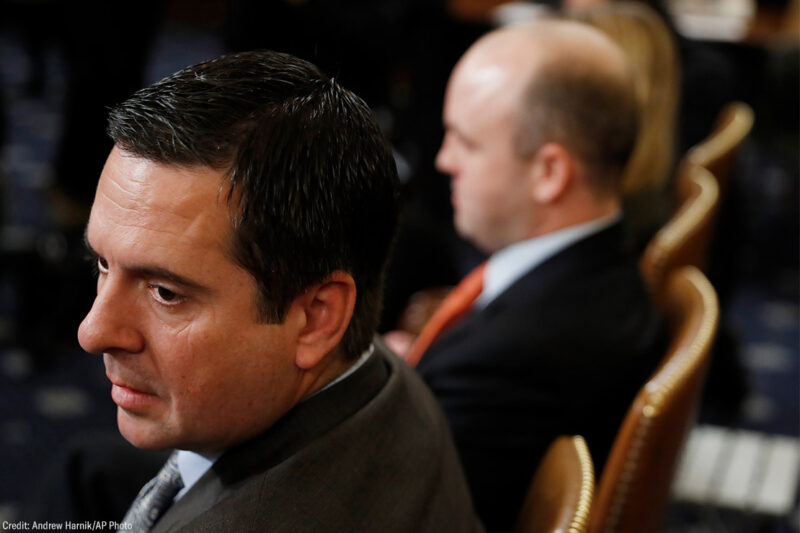Devin Nunes’ Cow Has a First Amendment Right to Call Rep. Nunes a ‘Treasonous Cowpoke’


You might think that Rep. Devin Nunes (R-Calif.), the Ranking Member of the House Intelligence Committee, would be too busy to file baseless defamation lawsuits against anonymous Twitter accounts. But you’d be wrong.
Last year, Rep. Nunes sued a number of people who were mean to him online, including the Twitter parody accounts Devin Nunes’ Mom and Devin Nunes’ Cow. Now, he’s trying to unmask the Cow by subpoenaing the author’s identity from a local law firm. The ACLU and Public Citizen have filed a friend-of-the-court brief urging the court to block Nunes’ subpoena because it violates the First Amendment right to anonymous speech.
From Sam Adams to Mark Twain, Americans throughout history have used pseudonyms to criticize public officials. People adopt pseudonyms for a number of different reasons, such as protecting privacy and preventing official retaliation. The Supreme Court has that “an author’s decision to remain anonymous, like other decisions concerning omissions or additions to the content of a publication, is an aspect of freedom of speech protected by the First Amendment.”
To protect anonymous speech, courts require defamation plaintiffs to satisfy a number of criteria before allowing them to use subpoenas and other discovery tools to unmask anonymous speakers. As particularly relevant here, a plaintiff must demonstrate that the defendant’s statements are plausibly defamatory (i.e., not protected opinion, parody, or political rhetoric) and produce evidence showing that the defendant’s statements were actually false. These requirements prevent plaintiffs from using meritless defamation claims as a vehicle to identify anonymous critics for purposes of retaliation, while allowing plaintiffs with legitimate claims to proceed. As we argue in our friend-of-the-court brief, these safeguards are not just good policy – they’re required by the First Amendment.
Rep. Nunes has utterly failed to satisfy these constitutional requirements. His defamation claims against the Cow are based on constitutionally protected statements of opinion and political rhetoric, such as the contention that Rep. Nunes is a “treasonous cowpoke” whose “boots are full of manure.” Rep. Nunes may not like these characterizations, but the First Amendment vigorously protects the right to use creative expressions of contempt when criticizing government officials. Even if Rep. Nunes had managed to identify a plausibly defamatory statement in his complaint, his subpoena would still fail because he has not submitted any evidence demonstrating that the allegedly defamatory statements about him are false.
Unfortunately, Rep. Nunes’ quest to unmask the Cow is no laughing matter. If he succeeds, government officials, large corporations, and other powerful figures will have a readymade playbook for abusing the judicial process to identify, punish, and silence their critics. Here’s hoping the court throws cold water on Rep. Nunes’ overheated claims. Maybe then he’ll finally learn to leave the Cow alone.


